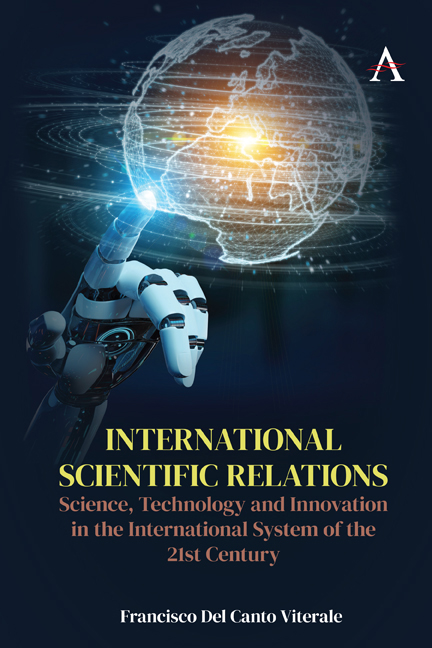 International Scientific Relations
International Scientific Relations 5 - Processes
Published online by Cambridge University Press: 08 October 2021
Summary
One of the most relevant topics in the field of ISR is the ensemble of operative processes that take place within it. As with any other system, ISR possesses specific methods of interconnection and interaction between its actors that generate particular internal mechanisms. In our current global context, it is possible to recognize some essential internal processes typical of scientific knowledge, which are a part of the operative mechanisms developed in the field of ISR but which, due to their relevance, influence the international system as a whole. Essentially, these processes describe and explain knowledge's life cycle from its creation to its final application and global governance.
It must be considered that all these internal processes of the ISR are part of a dynamics that is not linear, uniform, or progressive, but, on the contrary, these processes are strongly interlinked, which generates a more discontinuous, interrelated, and complex process. In practice, they are interactive processes that admit a certain degree of overlapping in time and whose protagonists intervene in diverse moments and play diverse roles. In reality, they are interactive processes where the interdependency between their mechanisms is the main characteristic and where each one of them is complex in itself due to the many actors establishing multiple interactions and carrying out many tasks with dissimilar results.
Consequently, the goal of this chapter is to tackle and examine the almost indecipherable black box that scientific knowledge represents, studying each of the processes and mechanisms that form it in depth. For that, it is necessary to make a detailed and deep analysis of the five main processes in ISR: production, intermediation, distribution, application, and governance.
Production
The production of scientific knowledge is one of the first processes that must be studied in the field of STI. The first approach allows us to see that the conjunction of the changes that have taken place in the global configuration of the international system, and the specific modifications that have happened in ISR (new actors, the redefinition of interactions, and the revaluing of scientific knowledge) have strongly affected how new scientific knowledge is produced.
- Type
- Chapter
- Information
- International Scientific RelationsScience, Technology and Innovation in the International System of the 21st Century, pp. 101 - 154Publisher: Anthem PressPrint publication year: 2021


